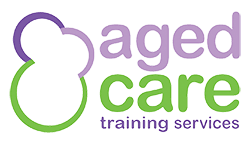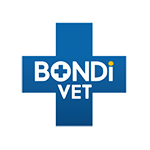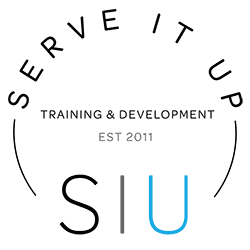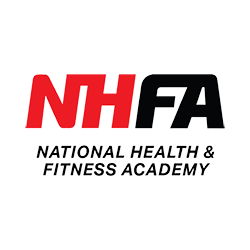In this post
Exam Preparation: How to Ace Your Studies

If just the thought of exam preparation makes your stomach churn, you’re in the right place. We understand that exams can be a stressful time for everyone, so we’re here to help you calm your nerves and maximise your chances of success.
In this blog, we will explore the most common types of exams and provide you with strategies to effectively prepare for any assessments you may have. Whether it’s multiple-choice tests, long-form essays, or short-answer questions, we’ve got you covered. By the end, you’ll feel more confident and fully equipped to tackle these challenges head-on.
Understanding different exam questions and formats
Knowing what types of exam questions and formats you could be up against helps you feel more prepared and can alleviate anxiety. Here are the most common types of exam formats.
1. Multiple-choice
Multiple-choice exams comprise questions with several answer options, requiring you to select the correct one. They assess not only your memory and understanding but also your ability to differentiate and eliminate incorrect choices.
These exams include a mix of straightforward and complex questions, some involving data interpretation or the application of knowledge to new scenarios. Efficient time management is crucial during these tests to avoid spending too long on difficult questions at the expense of easier ones.
2. True/false
The true/false format tests your precision in understanding key concepts. Each statement is either completely accurate or misleadingly false. While these questions may appear simple, they often involve nuances and technicalities that require close attention to detail. It’s not just about what you know, but knowing it well enough to spot falsehoods.
To excel in these exams, sharpen critical thinking skills and meticulously review study material. Small details often determine the truthfulness of a statement. Remember, if any part of the statement is false, the answer must be false.
Prepare to read carefully, trust your knowledge, and navigate this format with confidence. Avoid generalities and watch out for absolutes, as they can be the key to finding the right answer.
3. Matching
In matching format exams, your task is to pair columns of related items—think of it as a test of your ability to recognise patterns and correlations. Each side of the column will have different elements, such as dates with historical events, vocabulary with definitions, or causes with their effects. Your keen eye for detail and understanding of how pieces of information are intertwined will be integral to your success here.
Remember, this isn’t about memorising isolated facts; it’s about seeing the bigger picture and threading together the strands of knowledge you’ve acquired. Study smart by focusing on relationships within the material and practice with sample matching exercises to enhance your performance.
4. Essay
Are you daunted by the prospect of crafting complete essays within the constraints of exam time? Don’t worry, because essay exams provide an opportunity for you to demonstrate your critical thinking skills and articulate your understanding in a structured manner.
To excel, organise your thoughts clearly with an introduction, main body, and conclusion. Remember to support your points with evidence; quality is more important than quantity in this case. Take the time to plan and review your work, ensuring that your essay stays focused and flows logically.
Will this exam format allow you to showcase the depth of your knowledge? Absolutely, and with practice, you can learn to present your ideas clearly and concisely even under exam conditions. So why not start preparing now and turn your apprehension into achievement?
5. Short-answer
Short-answer questions go beyond the recognition of the correct answer—you must recall and express it clearly and concisely. These questions focus on key terms, concepts, and figures, challenging you to demonstrate a strong grasp of the subject in just a sentence or two.
Short-answer exams also assess your ability to showcase effective communication. To conquer them, study with a precise understanding. Memorise definitions, key points, and essential facts. Quick recall and staying focused are your strongest allies. Leverage the power of summary and focused study to excel in short-answer questions. Start practising with flashcards or summary notes for exam success.
6. Oral tests
Facing an oral test can be as challenging as a written exam, but it presents a valuable opportunity to engage directly with examiners and demonstrate your knowledge dynamically. Approaching this exam with confidence allows you to use verbal skills to express your understanding in ways that written words may not fully capture.
Oral tests evaluate not only your knowledge but also your ability to communicate, think on your feet, clarify concepts, and persuade your listener. To succeed, focus on clear articulation, active listening, and providing concise, well-structured responses. Practice makes perfect, so seize every opportunity to engage in discussions or deliver presentations before your exam. Remember, it’s not just what you say, but how you say it that truly matters.
Effective study techniques that deliver results
Say goodbye to last-minute cramming and embrace scientifically proven study methods. Here are a few techniques that’ll help boost your memory retention.
The Pomodoro technique
The Pomodoro Technique or ‘interval studying’, is a powerful learning tool that works by breaking up your study schedule into manageable, regular sessions over a longer period.
This technique leverages the psychological spacing effect, where information is better remembered if learning sessions are spaced out rather than crammed into a short timeframe. Studies show that learners who adopt this method retain information more effectively, thus increasing their ability to recall knowledge when it counts.
Mind mapping
Mind mapping is an innovative and visually stimulating method for structuring information, assisting learners in visualising concepts and their connections to reinforce understanding.
This approach encourages creativity and helps in organising thoughts coherently, making complex topics more accessible. By portraying the subject matter in a radiant, tree-like structure with branches representing different aspects, mind mapping can boost memory retention and clarity for learners, which is pivotal during revision.
The Leitner System
The Leitner System revolutionises the way you retain knowledge using the simple, yet powerful principle of spaced repetition with a twist of active recall.
Imagine conquering your study material with a system of flashcards sorted into groups, where each group is reviewed at increasing intervals—strategically re-examining what you’re struggling with more frequently.
This proven method ensures that you’re focusing your energy where it’s needed most, leveraging the power of cognitive psychology to help you master complex concepts faster and retain them longer. It’s not just about studying smarter; it’s about retaining knowledge with confidence.
The Feynman technique
The Feynman Technique is a learning technique that focuses on simplicity to help you develop a deep understanding of a subject. Here are the four steps you need to follow:
- Study your chosen topic
- Explain it as if you were teaching it to a child or someone new to the topic
- Identify gaps and go back to studying
- Organise, and simplify your new knowledge
By breaking down complex theories into basic building blocks, this technique solidifies your grasp and enables you to share knowledge with crystal clarity.
Interleaving
The interleaving technique is a study method that involves mixing different topics or forms of practice to improve learning. Instead of focusing on one topic until it’s mastered (a common approach called ‘blocking’), interleaving shuffles the order, injecting variety and challenge into your study routine.
But how exactly does mixing it up help with learning? Research suggests that by engaging the brain in differentiating between types of problems, you’re enhancing your ability to learn and apply knowledge. This approach can feel more difficult at first but ultimately leads to stronger, longer-lasting learning.
By alternating between subjects, your brain establishes more connections, aiding comprehension and the ability to apply knowledge to new situations. It also prevents burnout on a single topic and boosts long-term retention.
Essential exam day tips and tricks
On the day that will put your efforts to the test, it’s crucial to equip yourself with strategies that optimise performance. So, how can you stay calm and ensure that your hard work pays off?
- Pack all your essential materials the night before so you can arrive early for your exam and avoid any last-minute panics.
- Start with a nutritious and well-balanced breakfast to fuel your brain—studies show that students who eat well in the morning perform better.
- During the exam, pace yourself. Remember, it’s a marathon, not a sprint! Take a few deep breaths if you start to feel overwhelmed, and keep a close eye on the clock to manage your time effectively.
- Celebrate!
Mastering the art of studying is well within your reach. By understanding the various exam formats and incorporating effective study techniques into your learning plan, you’ll be ready to ace your exam when the day comes. Good luck.
Browse Results
Certificate III in Individual Support (Ageing and Disability) (NSW Only) CHC33021
Our nationally recognised CHC33021 Certificate III in Individual Support (Ageing and Disability) is the perfect qualification for people who have a passion for supporting the elderly, or those with a disability, to reach their full potential. Start a c...
Certificate IV in Entrepreneurship and New Business BSB40320
One idea is all it takes to start making things happen. Take the guesswork out of launching your business venture and turn your big idea into a viable success. With Open Colleges’ BSB40320 Certificate IV in Entrepreneurship and New Business, you’ll gai...
Certificate IV in Leisure and Health CHC43415
The activities that clients in the aged care, health, and community services sectors take part in can have an extremely positive impact on their daily lives. Get the skills to make a difference. As you progress through the course content, you’ll learn...
Veterinary Assistant & Animal Welfare Course Bundle
Isn’t it time you turned your passion for animals into a job you love doing every day? Have you always wanted to secure a role within the animal field? Whether you wish to enter a veterinary clinic as a vet nurse, work alongside exotic animals as...
Diploma of Nursing (SA and WA Only) HLT54121
Build a meaningful career that makes a difference with the HLT54121 Diploma of Nursing. This nationally recognised qualification provides the essential skills, knowledge, and practical training needed to become a qualified Enrolled Nurse in Australia....
Certificate IV in Accounting and Bookkeeping FNS40222
Become a financial all-rounder with the FNS40222 Certificate IV in Accounting and Bookkeeping. You will gain skills across the board from accounting to financial planning, bookkeeping, auditing and payroll. Whether you’re looking to start your own busi...
Dual Certificate IV in Alcohol and Other Drugs & Certificate IV in Mental Health CHC43215, CHC43315
This dual Certificate IV program will train you to assist people who are struggling with mental health, alcohol and drugs. You will graduate equipped to deliver treatment tailored to the individual, to improve their lives and give them hope for the fut...
Diploma of Business BSB50120
Business management roles are one of the largest and most varied occupations in Australia. These include general administrative, frontline management, and core business operational roles, which are applicable across a range of industries. In fact, the...
Certified AI Engineer Professional
Did you know that Australia has experienced an astounding 300% growth in AI-related jobs over the past five years? With an estimate annual growth rate of 15%, according to SEEK, there’s never been a better time to step into this booming field with an a...
Photography Essentials: Capture the Moment
Want to develop your artistic and technical photography skills? In Ulleo’s short course, you’ll learn how to get the most out of your camera and use light, colour and composition to create photos that make an impact. You’ll also learn how to refine you...
Certificate IV in Hospitality (Melbourne Only) SIT40422
Our government-funded SIT40422 Certificate IV in Hospitality offers comprehensive training, including RSA certification, Food Handler’s certificate, bar and cocktail making, beer knowledge, espresso coffee skills, food and beverage service, an introduc...
Complete Personal Trainer Program – Certificates III & IV in Fitness (VIC, NSW, QLD, SA & WA Only) SIS30321,SIS40221
Our Personal Trainer Program is a combined Certificate III and Certificate IV in Fitness course that is simply the very best way to become a fully qualified personal trainer. NHFA is devoted to excellence in teaching, learning, implementation, and to d...
Certificate IV in Training & Assessment TAE40122
The TAE40122 Certificate IV in Training and Assessment is a life-changing qualification designed to help everyday people pass on their wealth of knowledge and expertise to others. This entry-level qualification is the most current version of the Certif...
Pilates Matwork Instructor Course
Standout in the fitness and wellness industry with an accredited Mat Pilates Qualification! This course is a great opportunity to add a new skill set to your existing career or bundle with fitness certifications to establish yourself as a diverse, mult...
Fast Track PT Course SIS40221
Turn your love of fitness into a career and get on the fast track to becoming a qualified Personal Trainer. After completing the nine Fitness Fundamental units, you’ll then launch straight into the SIS40221 Certificate IV in Fitness and complete all th...
Certificate IV in Fitness SIS40221
Take the next step in your career and gain the qualification you need to become a Personal Trainer. If you currently work in the fitness industry as a Gym or Group Fitness Instructor, elevate yourself to the next level by studying the SIS40221 Certific...
Certificate III in Fitness SIS30321
If you’re looking to begin your career in the fitness industry, studying the SIS30321 Certificate III in Fitness is the perfect qualification to get you started. Gain all the knowledge and skills you need to enter the industry as a Gym Instructor or Gr...
Personal Trainer Course SIS30321,SIS40221
Join the fitness industry as a Personal Trainer and turn your love for fitness into a rewarding career by graduating in both the SIS30321 Certificate III in Fitness & SIS40221 Certificate IV in Fitness. Enjoy the flexibility of being your own boss...
Certificate III in Individual Support (Ageing & Disability) (QLD Only) CHC33021
This Nationally Accredited Certificate III in Individual Support (Ageing & Disability), will give you the skills and knowledge to work in the Ageing and Disability care industry and support those who are most vulnerable! Work in one of the most rew...
Certificate IV in Youth Work CHC40421
The Certificate IV in Youth Work is ideal for those who are passionate about making a difference in the lives of young people. You’ll gain the skills and knowledge to develop and implement programs that address their social, behavioural, health,...
Online courses also available
Latest Articles
Agriculture Careers: What You Should Know in 2025
As one of Australia's most important industries, the agriculture industry offers great career opport...
Are Digital Skills the Key to Job Security in 2025?
The digital revolution is here, and it doesn’t care if you have a technical job or not — it’s coming...
How to Become a Chef in Australia: Complete Guide for 2025
The complete guide to becoming a chef in Australia. Learn how to get your start and make it in the h...
Want to read more?
The Pros and Cons of Vocational Education
Want to know whether vocational education is right for you? Here's a list of pros and cons to help y...
10 High-Paying Jobs in Australia (based on real data)
Looking for a list of the highest paying jobs in 2022? We've collected job data, industry insights a...
The Importance of Note Taking: A Comprehensive Guide
Taking notes is a vital skill that spans across numerous disciplines and professions. But have you e...













